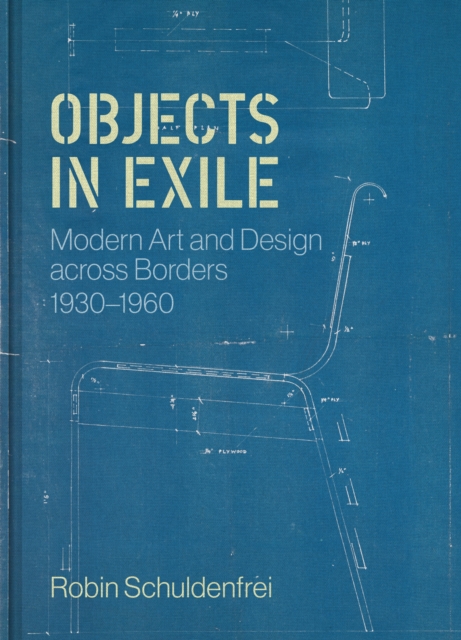Objects in Exile: Modern Art and Design Across Borders, 1930-1960

Objects in Exile: Modern Art and Design Across Borders, 1930-1960
An essential examination of how emigration and resettlement defined modernism
In the fraught years leading up to World War II, many modern artists and architects emigrated from continental Europe to the United States and Britain. The experience of exile infused their modernist ideas with new urgency and forced them to use certain materials in place of others, modify existing works, and reconsider their approach to design itself. In Objects in Exile, Robin Schuldenfrei reveals how the process of migration was crucial to the development of modernism, charting how modern art and architecture was shaped by the need to constantly face--and transcend--the materiality of things. Taking readers from the prewar era to the 1960s, Schuldenfrei explores the objects these émigrés brought with them, what they left behind, and the new works they completed in exile. She argues that modernism could only coalesce with the abandonment of national borders in a process of emigration and resettlement, and brings to life the vibrant postwar period when avant-garde ideas came together and emerged as mainstream modernism. Examining works by Walter Gropius, László Moholy-Nagy, Lucia Moholy, Herbert Bayer, Anni and Josef Albers, and others, Schuldenfrei demonstrates the social impact of art objects produced in exile. Shedding critical light on how the pressures of dislocation irrevocably altered the course of modernism, Objects in Exile shows how artists and designers, forced into exile by circumstances beyond their control, changed in unexpected ways to meet the needs and contexts of an uncertain world.PRP: 423.87 Lei
Acesta este Prețul Recomandat de Producător. Prețul de vânzare al produsului este afișat mai jos.
381.48Lei
381.48Lei
423.87 LeiIndisponibil
Descrierea produsului
An essential examination of how emigration and resettlement defined modernism
In the fraught years leading up to World War II, many modern artists and architects emigrated from continental Europe to the United States and Britain. The experience of exile infused their modernist ideas with new urgency and forced them to use certain materials in place of others, modify existing works, and reconsider their approach to design itself. In Objects in Exile, Robin Schuldenfrei reveals how the process of migration was crucial to the development of modernism, charting how modern art and architecture was shaped by the need to constantly face--and transcend--the materiality of things. Taking readers from the prewar era to the 1960s, Schuldenfrei explores the objects these émigrés brought with them, what they left behind, and the new works they completed in exile. She argues that modernism could only coalesce with the abandonment of national borders in a process of emigration and resettlement, and brings to life the vibrant postwar period when avant-garde ideas came together and emerged as mainstream modernism. Examining works by Walter Gropius, László Moholy-Nagy, Lucia Moholy, Herbert Bayer, Anni and Josef Albers, and others, Schuldenfrei demonstrates the social impact of art objects produced in exile. Shedding critical light on how the pressures of dislocation irrevocably altered the course of modernism, Objects in Exile shows how artists and designers, forced into exile by circumstances beyond their control, changed in unexpected ways to meet the needs and contexts of an uncertain world.Detaliile produsului











